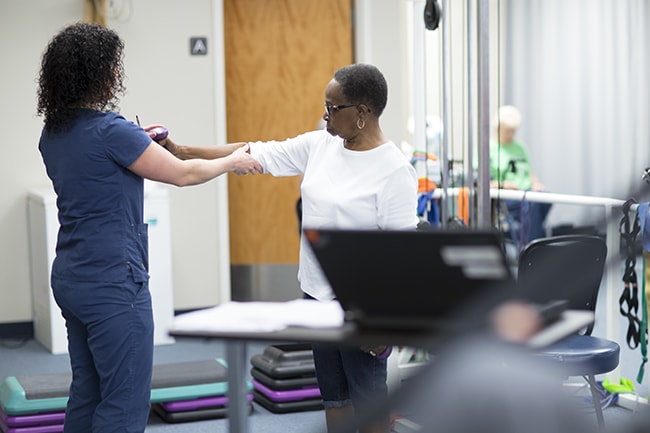If you’re entering middle age, snap, crackle and pop may not just be noises from your Rice Krispies. You may also be hearing them emanating from your knees. Are those noises something serious?
Well, the short answer is: Largely depends on the symptoms that accompany it.
It’s likely that most people have heard their knees crack. This occurs when we squat or make certain other movements. The good news is that it’s not a problem unless you also experience pain or swelling.
So why the noise?
Let’s take a look at some common causes of joint noise.
- Uneven cartilage. As we age, the tissue that covers the bones — cartilage — can wear and become uneven in certain areas. This causes the bones to rub against each other, which can lead to cracks and pops and grinding noises.
- Ligament tightening. When you move your joints, your ligaments may tighten, causing snapping or popping sounds. This is particularly common if you haven’t warmed up properly.
- Joint lining movement. As joints move, the joint lining moves over bones, which can cause noises.
- Nitrogen compression. Nitrogen bubbles fill the spaces of the joints in the body. When these bubbles compress, it causes gas to be released from the joint. For example, when you pop your knuckles, this sound is what you’re hearing.
If you experience sounds that are accompanied by discomfort or swelling, seek medical attention. This combination of symptoms can be a sign of meniscal tear or cartilage injury, among other conditions.
Quiet down, joints
Are the noises your joints are making still causing you alarm? There are certain steps you can take to help largely alleviate them.
- Exercise regularly. Include both cardiovascular exercise, such as walking, and strength-training using body weight or weights. It’s especially important to incorporate exercises that strengthen your joints, including the knees, hips, shoulders and elbows.
- Be sure to warm up. This is vitally important. Your joints are more likely to crackle and pop if you haven’t warmed up properly. You’re probably familiar with this phenomenon if you’ve tried to perform squats before a good warmup.
- Build flexibility. During your warmup, perform dynamic stretches that put each muscle through a full range of motion. Once you’ve finished your workout, stretch again — use static stretches, where you hold each movement for 30 seconds.
- Drink plenty of fluids. Staying hydrated will limit inflammation, a common source of joint noises.
Other tips for healthy joints
There are other steps you can take to help keep your joints in optimal shape.
Being overweight or obese puts extra pressure on weight-bearing joints, such as the knees and hips. Aim to maintain a healthy weight. For every pound a person gains, four times more stress is placed on the knees.
While you want to stretch and exercise the affected areas of the body, for optimal joint health, also exercise your core, including your chest, back and abdominal area. This will help your body maintain balance.
If you’re participating in sports or other athletic or work-related activities that require repetitive motion, wear proper gear. Choose activity-specific gear such as a helmet, knee pads, and elbow or wrist guards.
Eat a diet filled with sources of calcium and vitamin D, which will help strengthen your bones and joints. Vitamin C has also been shown to help with joint health.
Think your joint noises might be something serious? Visit the UT Erlanger Orthopaedic Injury Walk-In Clinic to learn more.







